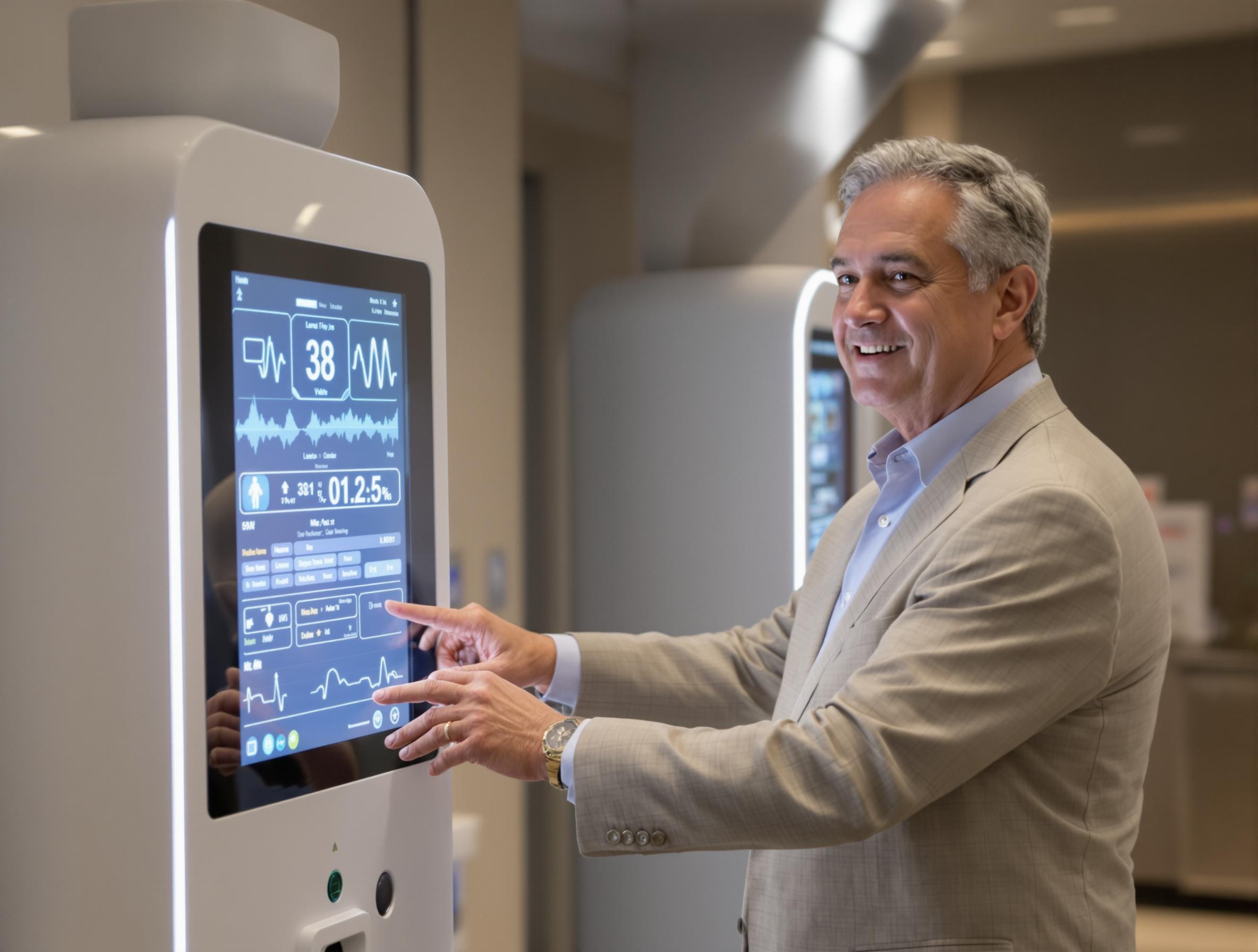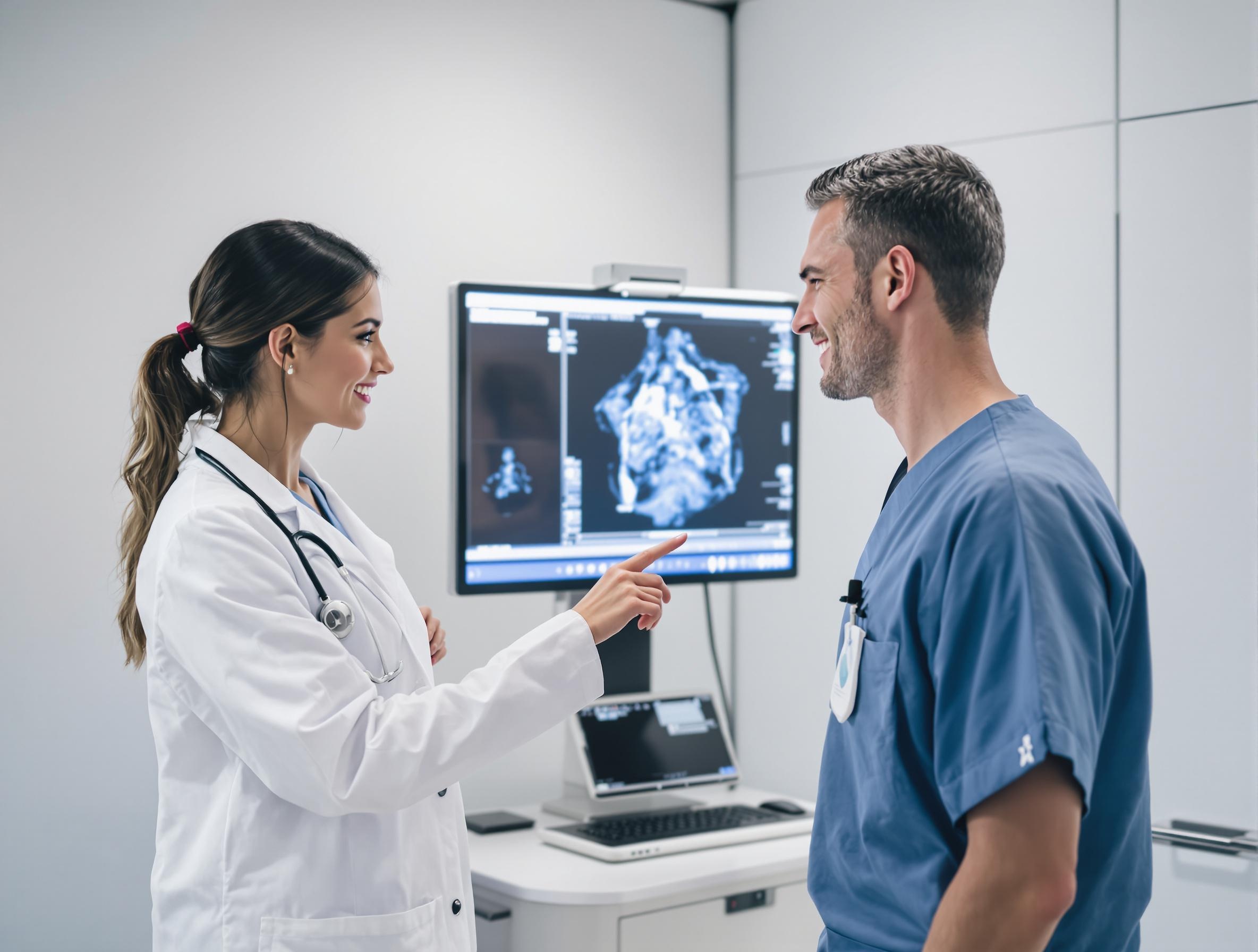What Are the Symptoms of High Blood Pressure? Unmasking the Silent Sign

Key Takeaways:
- High blood pressure (hypertension) is often symptom-free, but some signs, like headaches and dizziness, might appear.
- It’s called the “silent killer” because you might feel fine, even if your blood pressure is dangerously high.
- Regular check-ups are the best way to catch high blood pressure early before it leads to serious health issues.
We’ve all heard of high blood pressure, or hypertension, and yet, it’s kind of like that friend who’s always in the background, quietly causing problems without ever making a scene. You know the one. It doesn’t knock on your door or wave a red flag. Instead, it’s often completely symptom-free until it’s too late.
At Mobile Care Health, we emphasize the importance of proactive monitoring, as high blood pressure can sometimes show up with subtle (and sometimes confusing) signs. Paying attention to these symptoms is crucial, and with the right tools and support, it becomes easier to catch hypertension early. So, let’s look into what high blood pressure feels like, how you can spot those sneaky symptoms, and what you can do about it before it becomes a bigger health issue.
What is High Blood Pressure?
Think of your arteries as highways and blood as the cars driving down those roads. Blood pressure is the force the blood exerts on the walls of your arteries as it drives through.
High blood pressure is when that force is consistently too high, causing traffic jams (i.e., strain) on your arteries and heart. Over time, this can lead to heart disease, stroke, or kidney damage so, it’s something to watch out for!
Your blood pressure is measured with two numbers:
- Systolic pressure (the top number): This measures the pressure when your heart beats and pumps blood.
- Diastolic pressure (the bottom number): This measures the pressure when your heart is resting between beats.
The goal is to stay below 130/80 mmHg. If your numbers are consistently above that, it’s time to pay attention!
Why High Blood Pressure Is the “Silent Killer”
Here’s the dirty little secret: many people with high blood pressure don’t feel it at all! You can walk around feeling fine while your blood pressure steadily rises, silently causing wear and tear on your heart and blood vessels.
That’s why hypertension is called the “silent killer.” You might not even know you have it until it causes a serious problem.
But that doesn’t mean we’re totally in the dark! While many people with high blood pressure feel nothing at all, there are a few signs that could point to the condition.
The catch is, these symptoms are often vague and easily brushed off, which is why we’re here to help you understand the signals your body might be sending.
The Sneaky Symptoms of High Blood Pressure
So, what can high blood pressure feel like? It varies from person to person, but here’s what you should keep an eye out for:
1. Headaches
Yes, the classic headache, especially those that appear first thing in the morning. This could indicate that your blood pressure is getting too high. The headache may persist and feel like it’s not going away, no matter how much water or pain relievers you throw at it.
2. Dizziness or Lightheadedness
Feeling dizzy when you stand up or while moving around? That could be your blood pressure rising and making things a little… wonky. Your body might not be getting enough blood flow to the brain, which causes that lightheaded feeling.
3. Shortness of Breath
When your heart has to work overtime to pump blood (thanks to high blood pressure), it can leave you huffing and puffing, even if you’re not running a marathon. If you feel like you can’t catch your breath, or it’s happening more than usual, it might be time to get your blood pressure checked.
4. Chest Pain or Tightness
Now, this one’s a bit more serious. If you experience chest pain, tightness, or discomfort, don’t ignore it. This could indicate that your heart is struggling, and the blood pressure may be adding pressure to the situation. If this happens, call a healthcare provider!
5. Blurry Vision
High blood pressure can mess with the tiny blood vessels in your eyes. If you notice that your vision is blurry or that you see spots, it could be a sign that your arteries aren’t getting enough blood, and your eyes are paying the price.
6. Nosebleeds
Frequent or unexplained nosebleeds might seem weird, but they can be linked to high blood pressure. When the pressure in your blood vessels is too high, it can cause small capillaries in your nose to break.
7. Fatigue
Feeling sluggish and wiped out even after a good night’s sleep? High blood pressure can make your heart and body work harder, leaving you exhausted, weak, or just out of steam.
8. Heart Palpitations
Have you ever felt like your heart is pounding for no reason? That’s a heart palpitation, which can be caused by the extra work your heart has to do when you have high blood pressure. If your heartbeat feels off or racing, it’s worth checking with a doctor.
How to Keep Your Blood Pressure in Check
Here’s the good news: even if high blood pressure is starting to knock, you can make simple changes to keep it in check! Here are a few tips to keep your blood pressure happy and healthy:
- Move your body: Regular exercise strengthens your heart and helps lower blood pressure. Aim for 30 minutes a day, whether walking, yoga, or dancing like no one’s watching!
- Eat heart-healthy foods: A diet rich in fruits, veggies, lean proteins, and whole grains can lower blood pressure. Avoid too much salt, processed foods, and unhealthy fats.
- Manage stress: Stress can trigger those high blood pressure spikes, so try deep breathing, meditation, or picking up a hobby that helps you relax.
- Limit alcohol: Cutting back on alcohol can help bring your blood pressure down and keep your heart healthier.
- Stop smoking: Smoking is a major contributor to high blood pressure and heart disease, so if you’re a smoker, quitting is one of the best things you can do for your heart.
- Check your blood pressure: Regularly checking your blood pressure (at home or with a healthcare professional) is your best defense against the “silent killer.”
How Mobile Care Health Can Help You Stay Ahead of High Blood Pressure
At Mobile Care Health, we’re all about making it easy for you to stay on top of your health. We can help you track your blood pressure, give you tips on diet and lifestyle changes, and provide the support you need to manage your numbers.
Don’t wait for symptoms to show up. Let’s stay ahead of high blood pressure and keep you feeling your best!
Contact us today, and we’ll help you take the next step toward better heart health.
Articles on this site are for general education and do not substitute for professional medical advice. Consult our providers for personalized recommendations





